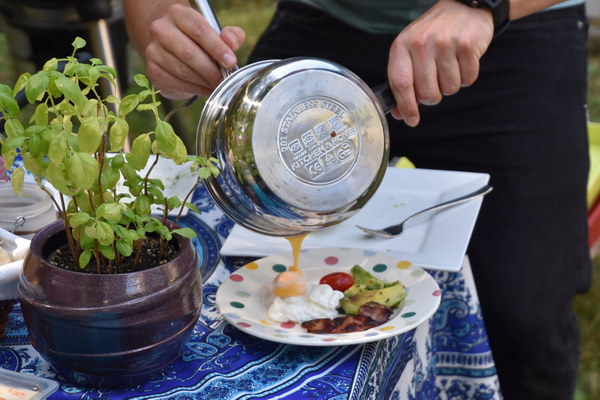Harmony with Nature Embracing the 24 Solar Terms for Optimal Health
In the traditional Chinese medicine, the 24 Solar Terms, or Jieqi, play a crucial role in maintaining health and well-being. Each term marks a specific moment in time, with its unique characteristics that affect both the natural world and our bodies. By understanding and embracing these solar terms, we can align our daily routines and diet with nature's rhythms, leading to a healthier and more balanced life.
The first solar term of the year is known as Start of Spring (Chunfen), which falls between February 4th and February 5th. This time of year signifies the transition from winter to spring, with temperatures gradually warming and the days getting longer. During this period, it is essential to focus on balancing the liver and gallbladder, as these organs are most active during Spring.
To maintain a harmonious balance, it is recommended to incorporate foods that nourish the liver, such as bitter greens like dandelion and arugula. These foods help to stimulate the liver and promote the circulation of Qi (vital energy) throughout the body. Additionally, incorporating foods rich in vitamin C, such as oranges and strawberries, can support the liver's detoxification process.
As the weather becomes warmer, it is important to stay hydrated by drinking plenty of water and herbal teas. Green tea, in particular, is beneficial during Start of Spring, as it helps to boost the immune system and reduce inflammation.
The next solar term, Clear and Bright (Qingming), occurs between April 4th and April 6th. This period is characterized by a significant rise in temperature and increased humidity, making it a time when allergies and respiratory issues can become more prevalent. To counteract these effects, focus on strengthening the lungs and large intestine.
To support lung health, consume foods that are moistening and nourishing, such as root vegetables like carrots and beets. These foods help to moisten the lungs and reduce dryness, which is common during this time of year. Furthermore, incorporating nuts and seeds, such as almonds and sunflower seeds, can help to strengthen the respiratory system.
In addition to diet, it is important to engage in activities that promote lung health, such as yoga, tai chi, or walking in nature. These practices help to improve lung capacity and reduce stress, which can exacerbate respiratory issues.
As the summer months approach, the Summer Solstice (Xiaonian) marks the longest day of the year, occurring between June 21st and June 22nd. This solar term is associated with the heart and small intestine, emphasizing the importance of balancing these organs.
To nourish the heart, consume foods that are cooling and calming, such as leafy greens like spinach and kale. These foods help to reduce internal heat and prevent heart-related issues. In addition, incorporating foods rich in magnesium, such as avocados and almonds, can support heart health.
As the heat intensifies, it is crucial to stay hydrated and avoid excessive exposure to the sun. Engaging in cooling activities, such as swimming or taking a cool bath, can help to regulate body temperature and prevent heat-related illnesses.
As we transition into autumn, the Start of Autumn (Qixi) occurs between August 7th and August 8th. This solar term is associated with the spleen and stomach, emphasizing the importance of balancing these organs.
To support the spleen and stomach, consume foods that are easily digestible and rich in probiotics, such as yogurt and kefir. These foods help to improve digestion and prevent bloating and constipation. Furthermore, incorporating warming spices like ginger and cinnamon can help to boost the immune system and ward off colds and flu.

As the weather becomes cooler, it is important to layer clothing and protect yourself from the cold. Engaging in warm, invigorating activities, such as brisk walking or cycling, can help to maintain a healthy metabolism and prevent weight gain.
The Winter Solstice (Dongzhi) takes place between December 21st and December 22nd, marking the shortest day of the year. This solar term is associated with the kidneys and bladder, emphasizing the importance of balancing these organs.
To support kidney and bladder health, consume foods that are warming and nourishing, such as root vegetables like sweet potatoes and carrots. These foods help to boost the immune system and provide energy during the cold winter months. In addition, incorporating foods rich in omega-3 fatty acids, such as fatty fish and flaxseeds, can support kidney health.
As the days grow shorter and temperatures drop, it is important to prioritize rest and relaxation. Engaging in calming activities, such as meditation or reading, can help to reduce stress and promote a sense of well-being.
By embracing the 24 Solar Terms and aligning our daily routines with nature's rhythms, we can enhance our overall health and well-being. By nourishing our body and mind









